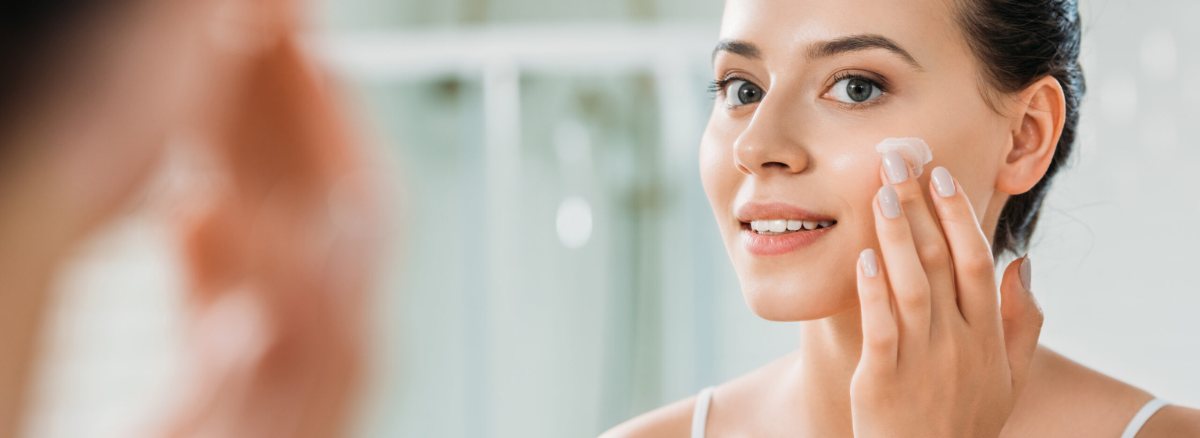Why do I have dry skin?
A common concern often gets raised that despite consistent moisturizing, my skin remains dry and feels stretched.
The one observation that I have is, that there is a sudden increase in the complaints of dry skin ever since Covid. Even people who had oily skin earlier and even the younger group (older people coming with dryness is understandable, see below) are now visiting the clinic for answers to their dryness. Also what I see is, that they may not complain of dryness but I observe their skin to be dehydrated, even those who have acne-prone skin.
What are the causes of dry skin?
Natural
The oil secreted by sebaceous glands (oil glands), keeps the skin soft and lubricated, but as we grow older, the oil production decreases. As a result of the decrease in oil or sebum production, the skin feels dry, rough, uneven, and dull. Also, the moisture-retaining property of the skin barrier decreases, and there is a decrease in the lipid layer of the skin barrier. These factors are a part of the normal and natural aging process. So one would observe the skin to get dry as we grow older.
Nutritional deficiencies
Anyone, young or old can be nutritionally deficient for various reasons, such as poor or inadequate diet, and there could be digestive problems. However nutritional deficiencies are frequently seen in older people because of decreased absorption of nutrients from the gut as we grow older and a decrease in food intake because of poor appetite. Do discuss with your doctor how to improve your diet to naturally increase your intake of micronutrients and other essential vitamins, your doctor may add oral intake of vitamins. These measures would improve dry and dull skin.
Dehydration
Inadequate water intake especially so in winter, leads to loss of natural hydration of the skin, leading to dry and dull skin. Drink plenty of water to keep the skin hydrated from within. Also remember to add at least one fresh coconut and lemon water in a day, as these provide the other essential minerals and micronutrients for skin hydration. The older age group should specifically take care of their water intake as it’s observed older generation drinks less water for multiple reasons.
Stress
Stress of any kind emotional or physical stress can lead to changes in the skin causing dull and dry skin.
Hormonal Imbalance
Thyroid hormonal imbalance especially hypothyroidism leads to dry skin. People who are hypothyroid, constantly struggle with dry skin problems not only on the face but the entire body. They need to use moisturizer meant for dry skin, advised to use cream form rather than lotion. Your dermatologist may recommend a special moisturizer with a few specific ingredients that help take care of dryness.
Medicines
A few medicines used for different problems can lead to dry skin, to name a few statins, diuretics, antihistamines (anti-allergy), and laxatives. Chemotherapy and dialysis also make the skin dry.
Can the deficiency of vitamins cause dryness of the skin?
I get a lot of queries about the dryness of skin. Patients often tell me, this year their skin has been extremely dry, and they need to apply moisturizer multiple times in a day.
There are multiple reasons for the dryness of the skin and one of them is lack of certain nutrients, vitamins, and minerals in our diet. Vitamin deficiency causes dry and dull skin.
All vitamins especially A, C, D, and E, play a very important role.
- Vitamin A is needed for the repair of skin cells, it leads to a healthy cell turnover. There is constant skin renewal happening, the old skin cells are replaced by new skin cells, and this is where the role of vitamin A comes in. In case of deficiency of vitamin A, there is a build-up of dead skin cells, the old cells are not being replaced by new skin cells, this gives an appearance of dull and dry skin. Vitamin A is also an essential antioxidant.
- Vitamin C is a potential antioxidant, it’s important for collagen production in the skin and body.
- Vitamin D plays an important role in skin barrier function and skin cell growth. Lack of vitamin D in the body disrupts the healthy skin barrier, which leads to dull and dehydrated skin.
- Vitamin E is an important antioxidant, that prevents damage from free radicals as a result of oxidative stress.
If you are persistently having dry skin, make sure you have a diet rich in all essential nutrients which includes all seasonal and fresh fruits and vegetables. If despite a good diet, sufficient intake of water, and use of a moisturizer on a regular basis, do consult your dermatologist who will assess your skin and advise appropriate vitamin supplements, changes in diet, and of course an appropriate moisturizer for your skin type.
How do I treat my dry skin?
Dry skin leads to an uneven, dull, lifeless, and dehydrated complexion; also causing discomfort, irritation, and itching. Despite the use of moisture the skin still feels dry all the time. And, I’m often asked this question “What more can we do to make the skin tone bright and hydrated?”
We first need to understand the reasons behind this dry and dull skin.
Based on this, we shall follow the below-mentioned steps to get a glowing and hydrated complexion.
- Moisturizer – Use a good moisturizer that suits your skin type, which is rich In ceramides and lipids which help protect the skin barrier and retain the moisture. Also, look for hyaluronic acid in the moisturizer or use a hyaluronic acid serum, as hyaluronic acid is the natural hydrating agent found in the skin.
- Drink plenty of water to keep yourself hydrated from within, at least 1.5L to 2L is needed even in winter and the intake in summer and people doing any form of exercise would need more water. Also add fresh coconut water, and lemon water, and add water-rich fruits like melons and watermelons in your diet in the summers, as they will help replenish the lost micronutrients and minerals from the body. These steps will help hydrate the skin from within and thus give you a bright, even, and glowing complexion.
- Diet plays an essential role in a supple and luminescent complexion. Eat a diet rich in all vitamins, minerals, antioxidants, omega fatty acids, and micronutrients. Include seasonal and fresh fruits and vegetables in your meals to get a balanced and nutritious diet.
- Protect yourself from the sun. The UV rays from the sun, damage the skin from oxidative stress, leading to dull and dry skin, causing sunburn and pigmentation. If possible avoid going out in the sun, especially from 11 am to 4 pm, when the UV rays are intense. Always wear an appropriate sunscreen to protect yourself. In addition can use an umbrella, caps, or hats and be fully clothed for extensive UV protection.
- Avoid extremes of temperatures, both very hot and cold as high and low temperatures dehydrate the skin causing dryness.
- Maintain adequate humidity indoors. When our environment is dry because of air conditioning or weather, the skin tends to be dry and dehydrated. In these circumstances, even oily skin will become dehydrated.
- Exercise will boost blood circulation, enriching the skin with nutrients, and making the skin radiant.
- Learn to destress yourself, we know very well that stress wreaks havoc on our skin. Exercise, yoga, deep breathing, mindfulness, and meditation shall help in getting a shining and glowing complexion.

